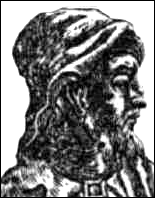The Golden Sayings of Epictetus

CX
When a friend inclined to Cynic views asked Epictetus, what sort of person a true Cynic should be, requesting a general sketch of the system, he answered:—"We will consider that at leisure. At present I content myself with saying this much: If a man put his hand to so weighty a matter without God, the wrath of God abides upon him. That which he covets will but bring upon him public shame. Not even on finding himself in a well-ordered house does a man step forward and say to himself, I must be master here! Else the lord of that house takes notice of it, and, seeing him insolently giving orders, drags him forth and chastises him. So it is also in this great City, the World. Here also is there a Lord of the House, who orders all things:—
“Thou art the Sun! in thine orbit thou hast power to make the
year and the seasons; to bid the fruits of the earth grow
and increase, the winds arise and fall; thou canst in due
measure cherish with thy warmth the frames of men; go make
thy circuit, and thus minister unto all from the greatest
to the least! . . .
“Thou canst lead a host against Troy; be Agamemnon!
“Thou canst meet Hector in single combat; be Achilles!
“But had Thersites stepped forward and claimed the chief command, he had been met with a refusal, or obtained it only to his own shame and confusion of face, before a cloud of witnesses.”
 Continue...
Continue...![[Buy at Amazon]](http://images.amazon.com/images/P/B000EWGY2C.01.MZZZZZZZ.jpg)